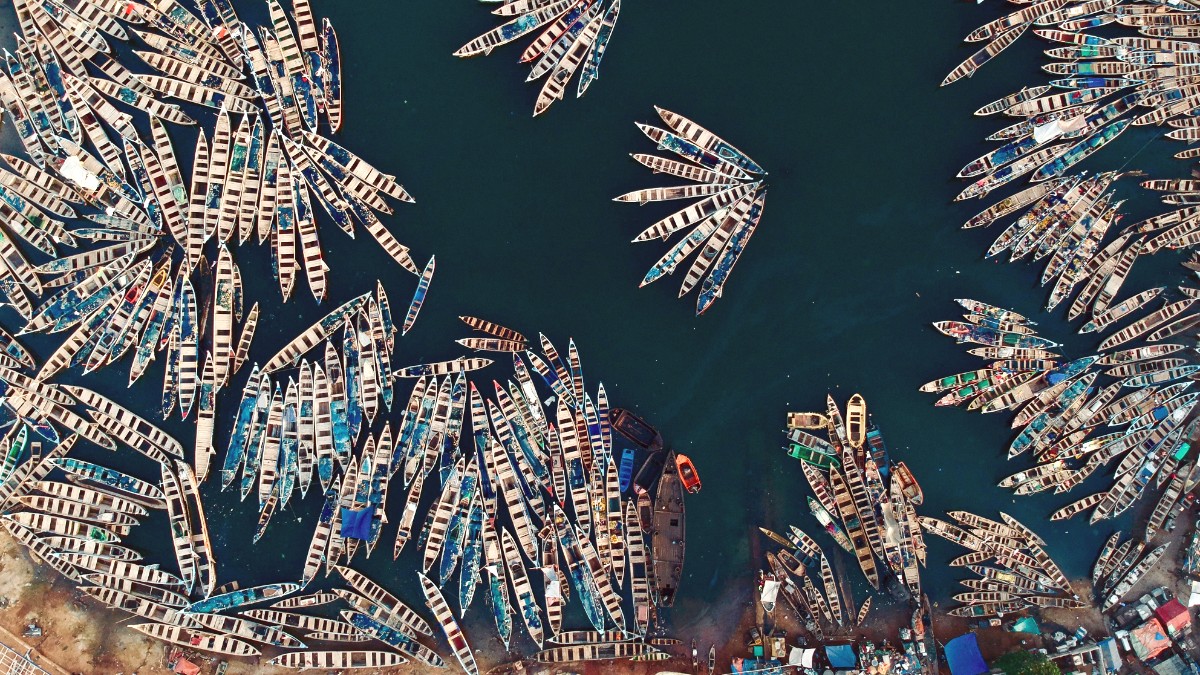
Ghana
Access to the sea made it a prime location for European traders in centuries past, leading to the construction of various forts that still mark the coastline today. This coastal advantage turned Accra into a major port city, and it remains Ghana’s main maritime gateway for trade and commerce. Cargo ships and fishing boats dot the horizon, a constant reminder of the ocean’s enduring influence on daily life and the economy. The city stretches along the shoreline, with neighborhoods often defined by their proximity to the sea or specific historical landmarks.
Beyond its immediate coastal zone, Accra’s urban landscape unfolds with a mix of built-up areas, bustling commercial zones, and pockets of green spaces like parks and gardens. While the city continues its rapid expansion, thoughtful urban planning integrates modern infrastructure with the natural environment. The flat topography generally makes movement straightforward, although traffic congestion presents a different kind of navigational challenge.
Its strategic location also positions Accra as a convenient launchpad for exploring the wider West African region, with land routes connecting to neighboring countries and air links facilitating travel across the continent.
Accra’s story reaches back to the 17th century, rooted in the establishment of three distinct coastal settlements: James Town, Ussher Town, and Ga Mashie. These communities, originally inhabited by the Ga people, soon became centers of European interest. British, Dutch, and Danish powers each constructed trading forts along this stretch of the Gold Coast. These forts, built mainly for the lucrative gold trade, quickly deepened their involvement in the transatlantic slave trade, a dark chapter that profoundly shaped the region’s history. Structures like James Fort and Ussher Fort are solemn reminders of this era, their walls echoing centuries of complex interactions and immense suffering.
As centuries passed, the British grew as the dominant colonial power, and the Gold Coast became a British colony. Accra, with its strategic port and established European presence, increased in importance. After World War II, a powerful independence movement swept across Africa. Ghana, formerly the Gold Coast, stood at the forefront of this movement. Accra became the struggle's center for self-rule. The charismatic leader, Kwame Nkrumah, rallied the nation from within the city, advocating for freedom and Pan-African unity. His efforts culminated in Ghana gaining independence on March 6, 1957, making it the first sub-Saharan African nation to break free from colonial rule. This event was a symbol of hope for the entire continent, a moment of immense historical weight.
Establishment of James Town, Ussher Town, and Ga Mashie settlements.
British, Dutch, and Danish powers built trading forts for gold and slave trade.
Accra becomes central to Ghana's independence movement.
Ghana achieves independence, a pioneering event for sub-Saharan Africa.
Accra named capital, symbolizing African liberation and progress.
Upon achieving independence, Accra was rightfully chosen as the capital of the newly formed Republic of Ghana. This designation marked a new era of development and rapid urbanization. The city transformed from a colonial trading post into a symbol of African liberation and progress. Significant landmarks like Independence Square, with its towering Black Star Gate, came into being to commemorate this newfound freedom and national pride.
Nkrumah’s vision for an united Africa also found its home here, making Accra a hub for Pan-African thought and diplomacy. The W. E. B. Du Bois Centre for Pan-African Culture, where the renowned African-American civil rights activist chose to spend his final years, is a testament to this enduring legacy.
Today, Accra’s historical significance is woven into its very fabric. The remnants of its colonial past coexist with the energetic pulse of a modern African capital. The city’s markets, its distinct neighborhoods, and its people all hold stories from these various periods.
The city’s past creates a deep, compelling context for its present dynamism.
For a relaxed start to your trip, consider booking accommodation in the Cantonments or Labone areas. These neighborhoods possess a quieter atmosphere while still delivering good access to the city's attractions via ride-sharing services.
Accra today holds the title of Ghana’s largest urban center and its undeniable economic powerhouse. It acts as the administrative, financial, and cultural heart of the nation, a bustling metropolis that never truly sleeps.
Known for its lively markets, Accra presents a sensory explosion of sights, sounds, and smells. Makola Market, a vast open-air bazaar, showcases the entrepreneurial spirit of the city, with vendors selling everything from fresh produce and textiles to electronics and traditional medicines. These markets are more than just places of commerce; they are social hubs, arteries of daily life where locals connect and community thrives.
Accra’s coastline, adorned with various beaches, creates opportunities for relaxation and recreation. Places like Labadi Beach become , especially on weekends.
The city’s arts and entertainment scene experiences rapid growth. Galleries showcase contemporary Ghanaian art, while live music venues pulsate with diverse beats.
Accra boasts a variety of historical sites that tell the story of its past, from coastal forts to independence monuments.
The city skillfully blends traditional Ghanaian culture with modern influences. This fusion exists everywhere: in architecture mixing colonial-era buildings with sleek high-rises, in fashion combining kente cloth with global trends, and in the culinary landscape where old recipes sit alongside international dining.